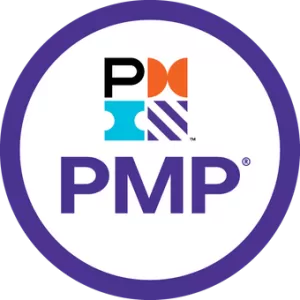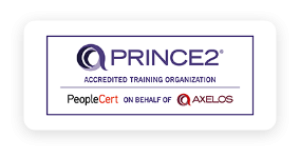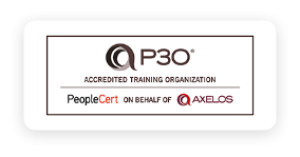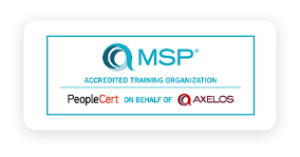In today's competitive job market, acquiring high-income skills is essential for achieving financial stability, career advancement, and long-term success.
Whether through employment, freelance work, or entrepreneurship, high-income skills enable individuals to solve complex problems and provide valuable solutions, making them indispensable in various industries.
This article explores the definition of high-income skills, provides examples across different fields, highlights their importance, and offers strategies to improve and master these skills for a prosperous career.
Definition of High-Income Skills
High-income skills refer to specialized abilities or expertise that have a significant market demand and command lucrative compensation. These skills are typically acquired through focused learning, practice, and experience, often in fields such as technology, finance, sales, or consulting.
High-income skills are characterized by their ability to generate substantial income either through employment, freelance work, or entrepreneurship, and they often involve solving complex problems or providing valuable solutions that are in high demand by businesses or individuals.
Examples of high-income skills include software development, digital marketing, investment analysis, sales closing, and strategic consulting.
In essence, high-income skills represent a pathway to financial success and stability, as they empower individuals to command higher wages or fees for their expertise.
They are not only valuable for immediate earning potential but also long-term career growth and financial independence.
Developing high-income skills requires dedication, continuous learning, and a willingness to adapt to changing market demands, but the rewards can be substantial, providing opportunities for professional advancement, wealth accumulation, and personal fulfillment.
12 High-income Skills to Learn at Home
Learning high-income skills at home has become more accessible than ever, thanks to the wealth of online resources available. Whether you're looking to switch careers, advance in your current field, or start a side hustle, here are some high-income skills you can learn from the comfort of your home:
1. Coding and Software Development
Proficiency in software engineering and development is highly valuable, with skills in coding languages such as Python, Java, JavaScript, and C++.
Expertise in fields like artificial intelligence, machine learning, and blockchain technology can also command significant salaries due to their growing demand.
These skills are essential for creating and maintaining software applications, systems, and infrastructures that drive modern businesses and technological advancements.
Platforms like Codecademy, Udacity, and freeCodeCamp offer courses that can help you become proficient in these languages and frameworks.
2. Data Science and Analytics
Data scientists and analysts who can interpret complex data sets, utilize statistical tools, and create predictive models are essential for informed decision-making in businesses. Their ability to derive actionable insights from data makes them highly sought after and well-compensated.
Skills in machine learning, data visualization, and big data technologies like Hadoop and Spark are particularly valuable in this field, enabling companies to optimize operations, enhance customer experiences, and drive strategic initiatives.
Online platforms like Coursera, edX, and DataCamp offer comprehensive courses in data science and analytics. Focus on machine learning, data visualization, and statistical analysis to harness the power of data and make data-driven decisions.
3. Digital Marketing and SEO
Skills in digital marketing, including search engine optimization (SEO), pay-per-click (PPC) advertising, content marketing, and social media management, are crucial for businesses looking to enhance their online presence and drive growth.
Mastery of these skills can lead to high earnings, as effective digital marketing strategies are integral to attracting and retaining customers in the digital age.
Professionals who excel in these areas are adept at leveraging various online platforms and tools to create engaging campaigns and measure their impact.
Resources like HubSpot Academy, Google Digital Garage, and Udemy provide excellent courses on various aspects of digital marketing.
4. Financial Planning and Analysis
Financial planners, analysts, and advisors who can develop effective financial strategies, conduct thorough market analysis, and provide sound investment advice are critical for both individuals and businesses.
Their expertise helps maximize financial performance and stability. Skills in financial modeling, risk management, and portfolio management are particularly valuable, enabling professionals to make informed decisions that drive profitability and long-term growth.
Platforms like the Corporate Finance Institute (CFI), Investopedia Academy, and Coursera offer courses that teach these critical financial skills.
5. Project and Program Management
Effective project and program management skills, including leadership, strategic planning, and risk management, are essential for ensuring that projects are completed successfully. Skilled project managers are in high demand and often command high salaries.
Proficiency in project management methodologies such as Agile, Scrum, and Lean, as well as tools like Microsoft Project and Asana, is crucial for coordinating teams, managing timelines, and delivering results that meet or exceed expectations.
Join Bakkah's PMP course today and gain the knowledge, skills, and confidence needed to advance your project management career.
6. Technical Writing and Content Creation
High-level skills in technical writing, copywriting, and content creation are valuable for producing clear, engaging, and persuasive content. Professionals who excel in these areas can command high rates for their ability to communicate complex ideas effectively.
Expertise in creating user manuals, white papers, marketing materials, and other specialized content is essential for supporting product development, marketing campaigns, and customer education.
Courses from the Society for Technical Communication (STC), Udemy, and LinkedIn Learning can help you develop technical writing skills.
7. Graphic Design
Graphic design skills are valuable in marketing, advertising, and web design. Learning to use tools like Adobe Photoshop, Illustrator, and InDesign can significantly boost your earning potential.
Websites like Skillshare, CalArts, Udemy, Lynda (LinkedIn Learning), and Canva provide excellent tutorials and courses.
8. Cybersecurity
As cyber threats continue to escalate, cybersecurity professionals are in high demand. Skills in network security, ethical hacking, and information assurance are critical for protecting sensitive data and systems from breaches.
Proficiency in tools and methodologies such as penetration testing, security information and event management (SIEM), and encryption technologies is essential for safeguarding organizational assets and ensuring compliance with regulatory standards.
Online Platforms like Cybrary, Coursera, and Udacity offer courses in cybersecurity fundamentals, ethical hacking, and more.
9. UX/UI Design
User experience (UX) and user interface (UI) design skills are highly valued in the marketing, entertainment, and media industries. These skills are critical for developing engaging digital experiences and branding initiatives.
Learning tools like Sketch, Figma, and Adobe XD, along with principles of UX/UI design, can be done through online courses on platforms such as Coursera, Interaction Design Foundation, and Udacity.
10. Video Production and Editing
Video content is increasingly popular, making video production and editing skills highly valuable. Learning to use tools like Adobe Premiere Pro, Final Cut Pro, and After Effects can lead to lucrative opportunities in marketing, entertainment, and online media.
Websites like Lynda (LinkedIn Learning), Skillshare, and YouTube offer tutorials and courses.
11. Sales and Business Development
Exceptional sales and business development skills are invaluable for driving company revenue. Professionals who excel in identifying market opportunities, building client relationships, and closing deals are often rewarded with high commissions and bonuses.
Skills in negotiation, customer relationship management (CRM), and strategic selling are essential for achieving sales targets and expanding business reach. These professionals play a crucial role in sustaining business growth and competitiveness.
Online courses from Sandler Training, LinkedIn Learning, and Coursera can help you refine your sales techniques.
12. Strategic Consulting
Consultants with expertise in business strategy, operations improvement, and organizational change management help companies solve complex problems and improve performance.
Their ability to provide valuable insights and actionable recommendations makes them highly compensated.
Skills in business analysis, strategic planning, and performance management are essential for driving business transformation and achieving sustainable growth.
Platforms like Coursera, Udemy, and Management Consulted will provide you with the skills needed to excellence in consulting strategies.
By dedicating time and effort to learning these high-income skills at home, you can significantly enhance your career opportunities and financial stability. The flexibility of online learning allows you to progress at your own pace, making it easier to balance with other commitments.
High-Income Skills Examples
High-income skills are specialized abilities that are highly valued in the job market due to their significant impact on business success and individual financial growth.
These skills not only open doors to high-paying job opportunities but also empower individuals to achieve professional and personal fulfillment.
Mastering high-income skills requires dedication and continuous learning, but the rewards are substantial, offering stability and advancement in one's career.
Below are some prime examples of high-income skills that can significantly boost earning potential and career prospects:
Technical Skills
Technical skills include software development (Java, Python), data science (machine learning, statistical analysis), cybersecurity (network security, ethical hacking), cloud computing (AWS, Azure), and AI (TensorFlow, PyTorch).
These skills are vital for creating, securing, and optimizing technological solutions. Examples of technical skills include:
1. Software Development
Mastering languages such as Java, Python, C++, and JavaScript opens doors to roles like full-stack developer, mobile app developer, and game developer, where the ability to create, maintain, and optimize software solutions is highly valued.
2. Data Science and Analytics
Proficiency in machine learning, statistical analysis, and data visualization equips one for roles like data scientist, data analyst, and business intelligence analyst, focusing on deriving insights from complex data to drive strategic decisions.
3. Cybersecurity
Expertise in network security, ethical hacking, and information security prepares one for careers as a security analyst, penetration tester, and security consultant, safeguarding organizations against cyber threats.
4. Cloud Computing
Knowledge of AWS, Azure, and Google Cloud Platform enables one to become a cloud architect, cloud engineer, or DevOps engineer, roles critical for managing and optimizing cloud-based infrastructures.
5. Artificial Intelligence and Machine Learning
Skills in TensorFlow, PyTorch, NLP, and computer vision lead to positions such as AI engineer, machine learning engineer, and research scientist, where developing intelligent systems is key.
Business and Financial Skills
Business and financial skills cover sales (B2B, negotiation), digital marketing (SEO, social media), financial management (analysis, investment), project management (Agile, PMP), and consulting (business strategy). These skills drive growth, efficiency, and strategic improvements. Examples of business and financial skills include:
1. Sales
B2B sales, sales strategy, and negotiation skills are essential for roles like sales executive, account manager, and business development manager, where closing deals and building client relationships are crucial.
2. Digital Marketing
Expertise in SEO, PPC, social media marketing, and content marketing paves the way for roles such as digital marketing manager, growth hacker, and SEO specialist, focusing on enhancing online visibility and driving growth.
3. Financial Management
Proficiency in financial analysis, investment strategies, and risk management is vital for financial analyst, investment banker, and portfolio manager roles, which involve managing assets and providing investment advice.
4. Project Management
Skills in Agile, Scrum, and PMP certification are fundamental for project manager, program manager, and operations manager positions, where overseeing projects and ensuring their successful completion is critical.
5. Consulting
Expertise in business strategy, management consulting, and operational improvements prepares one for roles like management consultant, strategy consultant, and business advisor, offering solutions to enhance business performance.
Creative and Design Skills
Creative and design skills involve UX/UI design (user research, prototyping), graphic design (Adobe Creative Suite, branding), and copywriting (persuasive writing, SEO).
These skills enhance user experiences and create compelling visual and written content. Examples of creative and design skills include:
1. UX/UI Design
Mastery of user research, wireframing, and prototyping leads to roles such as UX designer, UI designer, and product designer, focusing on creating user-friendly interfaces.
2. Graphic Design
Proficiency in Adobe Creative Suite, branding, and illustration enables careers as graphic designer, art director, and visual designer, where visual communication is key.
3. Copywriting
Skills in persuasive writing, SEO copywriting, and content creation are essential for copywriter, content strategist, and marketing writer roles, emphasizing crafting compelling and effective messaging.
Communication and Interpersonal Skills
Communication and interpersonal skills encompass public speaking (presentation, engagement), negotiation (conflict resolution, deal-making), and leadership (team management, strategic planning). These skills ensure effective communication and leadership.
Examples of communication and interpersonal skills include:
1. Public Speaking
Expertise in speech writing, presentation skills, and audience engagement is crucial for roles like public speaker, motivational speaker, and corporate trainer, where delivering impactful messages is paramount.
2. Negotiation
Proficiency in conflict resolution, deal-making, and influence tactics is vital for careers as a negotiator, mediator, and procurement specialist, where reaching favorable agreements is the goal.
3. Leadership
Skills in team management, strategic planning, and organizational development are essential for executive roles (CEO, COO), team leader, and department head positions, focusing on guiding teams and organizations to success.
Trade Skills
Trade skills include real estate (market analysis, property management), construction management (project planning, site supervision), and technical maintenance (plumbing, electrical work). These skills are essential for building and maintaining infrastructure and properties.
Examples of trade skills include:
1. Real Estate
Mastery of market analysis, property management, and sales is key for real estate agents, property managers, and real estate investor roles, where managing and investing in properties is the main focus.
2. Construction Management
Proficiency in project planning, construction laws, and site management prepares one for careers as a construction manager, site supervisor, and project estimator, overseeing construction projects.
3. Plumbing and Electrical Work
Expertise in system installation, maintenance, and safety regulations leads to roles like master plumber, electrical engineer, and HVAC technician, where ensuring functional and safe systems is essential.
Developing and mastering these high-income skills can significantly enhance career opportunities and financial success, providing a strong foundation for long-term professional growth and stability.
By investing in continuous learning and skill development, individuals can stay competitive in an ever-evolving job market and achieve their career and financial goals.
Importance of High-Income Skills
High-income skills are essential for financial stability, career growth, and long-term success. They are highly valued in various industries, allowing individuals to command competitive salaries and seize lucrative opportunities.
These skills involve problem-solving and critical thinking, contributing to personal and professional development. Overall, high-income skills provide a pathway to achieving financial security and career fulfillment in today's competitive market. Here is a detailed discussion of the importance of high-income skills:
1. Financial Stability and Security
High-income skills offer individuals the opportunity to earn a substantial income, providing financial stability and security.
With the rising costs of living and economic uncertainties, having high-income skills allows individuals to maintain a comfortable standard of living and pursue their financial goals.
2. High Demand and Market Value
High-income skills are in high demand in various industries, making individuals with these skills valuable assets to employers or clients.
Whether it's in technology, finance, healthcare, or other sectors, those with specialized expertise can command competitive salaries, negotiate better terms, or even start their businesses.
3. Problem-solving and Personal Growth
High-income skills often involve problem-solving and critical thinking abilities, which benefit individuals in their professional endeavors and contribute to their personal growth and development.
By continuously honing these skills, individuals can stay relevant in a rapidly changing job market, adapt to new technologies and trends, and seize opportunities for career advancement and success.
4. Career Advancement and Long-Term Success
Developing and maintaining high-income skills is essential for achieving financial prosperity, career fulfillment, and long-term success.
These skills enable individuals to progress in their careers, access better opportunities, and achieve their professional and personal goals in today's competitive world.
In conclusion, high-income skills are vital for navigating the complexities of the modern job market and achieving financial and professional success.
By investing in and continuously developing these skills, individuals can secure a stable income, remain competitive in their fields, and unlock new opportunities for growth and advancement.
Prioritizing high-income skills not only ensures financial stability but also fosters personal development and long-term career satisfaction.
Strategies to Improve High-Income Skills
Improving high-income skills requires a combination of education, practice, networking, and continuous learning. Here are strategies to enhance these skills:
1. Continuous Learning
Continuous learning is essential for staying competitive in any high-income field. This involves enrolling in relevant courses, degrees, or certification programs and utilizing online platforms like Coursera, Udemy, or LinkedIn Learning.
Keeping up-to-date by reading books, articles, and industry publications is also crucial. This ongoing education helps you stay informed about the latest developments and best practices in your area of expertise.
2. Practical Experience
Gaining practical experience is crucial for applying theoretical knowledge to real-world situations. This can be achieved through hands-on practice with personal or professional projects, internships, part-time jobs, or volunteer work.
Freelancing is another excellent way to build a diverse portfolio, showcasing your ability to handle various tasks and challenges in your field.
3. Networking
Building a strong professional network is vital for career growth. Joining industry groups or professional associations, attending conferences, workshops, and seminars, and participating in online communities can provide valuable connections and insights.
Networking helps you stay informed about job opportunities, industry trends, and best practices, as well as fostering relationships that can lead to career advancements.
4. Mentorship and Coaching
Seeking mentorship and coaching can provide personalized guidance and support. Finding a mentor with experience in your field can offer valuable insights, advice, and feedback.
Professional coaching can help you develop specific skills and strategies to achieve your career goals. Both mentorship and coaching contribute to your professional growth and help you navigate challenges more effectively.
5. Certifications and Specializations
Obtaining certifications and focusing on specializations within your field can significantly enhance your credibility and expertise. Certifications validate your skills and knowledge, making you more attractive to employers.
Specializing in niche areas allows you to become an expert in specific aspects of your field, setting you apart from generalists and increasing your value in the job market.
6. Feedback and Improvement
Regularly seeking feedback and engaging in self-assessment are key to continuous improvement. Constructive feedback from peers, mentors, and supervisors can highlight areas for development and provide actionable insights.
Self-assessment helps you evaluate your progress and identify skills that need enhancement, fostering a culture of continuous personal and professional growth.
7. Staying Current
Staying current with industry trends and advancements is critical for maintaining relevance and competitiveness. Following trends through industry publications, blogs, and news, and attending workshops and training sessions helps keep your skills and knowledge up to date.
This proactive approach ensures you are aware of new technologies, methodologies, and best practices in your field.
8. Soft Skills Enhancement
Enhancing soft skills, such as communication, leadership, and problem-solving, is essential for professional success. Effective verbal and written communication skills enable you to convey ideas clearly and persuasively.
Developing leadership skills through practice and education helps in managing teams and projects. Improving problem-solving abilities fosters critical thinking and innovative solutions to challenges.
9. Building a Personal Brand
Building a strong personal brand can differentiate you in a competitive market. Creating an online presence through LinkedIn, personal websites, or blogs showcases your expertise and achievements.
Developing a portfolio that highlights your best work and accomplishments reinforces your credibility and attractiveness to potential employers and clients.
10. Resilience and Adaptability
Cultivating resilience and adaptability is crucial for navigating the ever-changing professional landscape. Being open to learning new skills and adapting to industry changes ensures long-term career success.
Developing a resilient mindset helps you effectively handle challenges and setbacks, turning them into opportunities for growth and development.
By focusing on these strategies, you can continuously develop and enhance your high-income skills, making yourself more valuable and competitive in the job market.
Elevate Your Career with High-Income Skills Certifications from Bakkah Learning!
Discover the pathway to financial success and career advancement by acquiring high-income skills with certifications from Bakkah Learning.
Explore certificates like Project Management Professional (PMP), Certified Associate in Project Management (CAPM), and PRINCE2 Agile to master essential business and management skills.
Develop expertise in ITIL® 4 Foundation, Lean Six Sigma Black Belt, and Certified Supply Chain Professional (CSCP) to enhance your earning potential and marketability in today's competitive job market. Take the next step towards your professional goals and enroll in our courses today!
Conclusion
High-income skills are the cornerstone of professional success and financial stability in today’s dynamic job market.
Mastering high-income skills, whether they are technical, business-related, creative, or interpersonal, involves a commitment to continuous learning and practical application.
By investing in continuous education, gaining hands-on experience, and actively networking, individuals can enhance their skill sets and stay competitive.
Ultimately, the pursuit of high-income skills not only paves the way for financial prosperity but also enriches personal development, leading to a fulfilling and successful career. By prioritizing these skills, individuals can achieve their professional aspirations and secure a stable, rewarding future.








